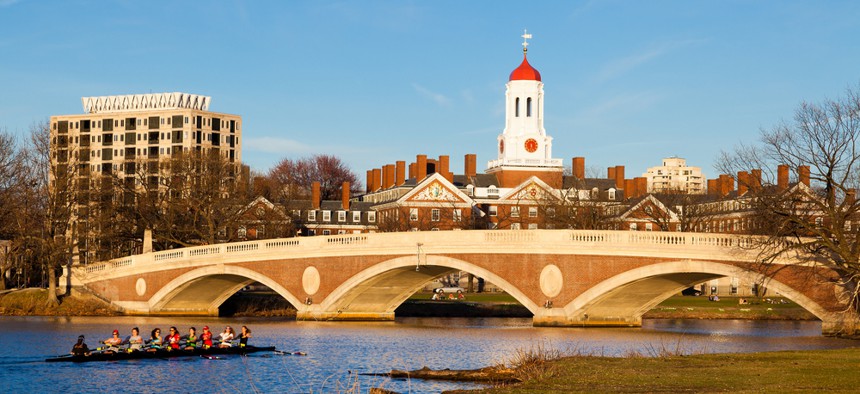
Image via Marcio Jose Bastos Silva / Shutterstock.com
Did Harvard Just Make It OK to Spy on Employees?
Harvard may have made history in setting an example for how to spy on employees.
In scanning the email of its resident deans in order to suss out the source of a leaked letter, Harvard may have made history — in setting an example for how to spy on employees in "blanket" fashion: Search 'em all to find just one, and don't tell anybody about it. The university's statement on Monday, in which it admitted to scanning the electronic headers of more than a dozen deans' email history, capped a three-day-long controversy that began with the revelation on Saturday that Harvard officials, in an effort to plug a series of leaks to The Harvard Crimson (concerning that huge cheating ring), had identified a dean who forwarded an email to two advisees... and then searched the email of a bunch more deans. Being vaguely reminiscent of Goldman Sach's epic "Muppet" search that transfixed the banking world in 2012, Harvard's investigation also set off another debate about privacy in work environments — everyone's favorite topic! — due to the odd circumstances under which Harvard's administration conducted the search.
Some background: According to The Boston Globe, Harvard professors Michael Smith (the school's Dean of the Faculty of Arts and Sciences) and Evelynn Hammond (the dean of Harvard College) first tried asking Harvard's resident deans — who all received the leaked correspondence — if they had provided it to another person. When none of them did, Smith and Hammond ordered a search of the email metadata (not the emails themselves) for all 16 resident deans in question. That search turned up a still unnamed resident dean, who admitted that he or she had in fact forwarded the email to two students. As Kashmir Hill at Forbes points out, this procedure isn't that strange, nor especially far-reaching:
All in all, it wasn’t a very invasive search. They can be much worse. ... While you don’t completely give up your privacy when using work email or sending personal email from work devices, employers can go searching when they have a legitimate reason.
What was strange was the fact that Harvard declined to inform the deans that their email was being searched at all. This, Harvard claims, was a measure intended to protect the identity of the unnamed dean (who apparently leaked private correspondence by accident). But doing so kept the other deans in the dark, even as their emails got spied upon by their employers, which opened up Harvard to accusations that it had invaded the privacy of its faculty.
Read more at The Atlantic Wire.






